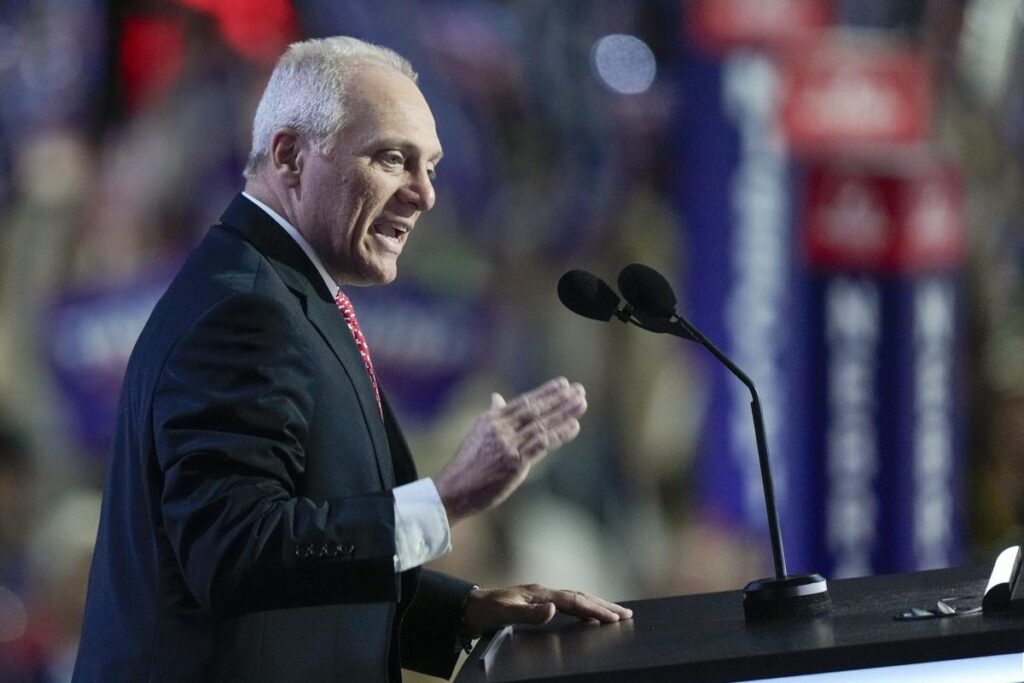In the midst of a pivotal election year, Louisiana Democrats are striving to convert a historically Republican congressional seat into a competitive asset, particularly in light of recent redistricting that has carved out the state’s second mostly Black congressional district. At the forefront of this initiative is Cleo Fields, a seasoned politician with three decades of experience in state politics and former congressional service since 1992. With a crowded ballot featuring five candidates, Fields has emerged as the Democratic contender aiming to capitalize on the demographic changes within the newly configured Louisiana’s Sixth Congressional District, which now boasts a majority of Black voters.
The Republicans, in contrast, are focused on retaining their hold on this influential seat, especially as they seek to maintain their majority in the U.S. House amidst nationwide political challenges. Their representative, Elbert Guillory, an octogenarian and former state lawmaker, is the sole Republican vying for the position. The competition is intense, as only one Democrat has successfully won this seat over nearly half a century, highlighting the historical significance and uphill battle for Fields and the Democratic Party in the context of Louisiana’s political landscape.
In January, Louisiana’s lawmakers approved a new congressional map that emphasizes the creation of a second majority-Black district, a result of extensive legal disputes and negotiations spanning almost two years. The geographical boundaries of the 6th District were specifically redrawn to extend from Baton Rouge in the southeast to Shreveport in the northwest, reflecting a dramatic shift in the electoral dynamics of the area. Previously, just 24% of the district’s voters were Black, but that figure has now surged to 54%, thereby enhancing the representation and political engagement of Black constituents in this critical electoral race.
Legal disputes regarding the new map have emerged, with a lower court ruling against its implementation on grounds of racial gerrymandering. However, a subsequent Supreme Court decision mandated the use of this electoral configuration for the upcoming congressional elections, significantly bolstering the Democratic Party’s chances of reclaiming lost ground within the closely divided House of Representatives. Currently, Louisiana’s congressional delegation includes only one Democrat, U.S. Rep. Troy Carter, who stands as the state’s sole Black representative in Congress, highlighting the uphill struggle for Democrats in a predominantly Republican environment.
The political climate has been further complicated by the decision of incumbent Republican U.S. Rep. Garret Graves to forgo re-election, citing the challenges imposed by the new district map as a significant factor in his choice. His absence from the ballot symbolizes a broader shift in Louisiana’s political landscape, opening doors for new candidates and potentially altering the balance of power within the state’s congressional delegation. The rivalry takes on added intensity with the realization that all of Louisiana’s six congressional seats are up for grabs, with five incumbents attempting to fend off lesser-known challengers while also navigating their respective party dynamics.
As candidates prepare for the imperative election cycle, both parties recognize the high stakes involved. The outcomes of these races could resonate far beyond Louisiana, influencing the national political landscape and the composition of the U.S. House. With prominent Republican figures like U.S. House Speaker Mike Johnson and Majority Leader Steve Scalise seeking re-election, the electoral battle promises not just to test the resilience of the Republican Party in southern states, but also to serve as a litmus test for the national Democratic agenda. The impending election holds potential implications for future policymaking and representation, ultimately reflecting broader societal changes and the ongoing evolution of American political identity.

